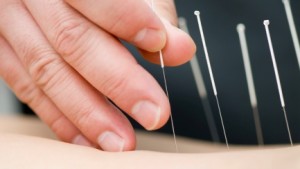How can you treat Insomnia with Acupunture?
 Sleepless nights are terrible and it’s likely that we’ve all experienced at least one. The more you want to get to sleep, the more you are unable and your mind stays switched on despite the tiredness of your body. This experience can become traumatic when it is experienced several nights in succession, or even on a nightly basis. When you really can’t sleep, pharmaceuticals become a desperate solution, and bring unpleasant effects to other aspects of your wellbeing.
Sleepless nights are terrible and it’s likely that we’ve all experienced at least one. The more you want to get to sleep, the more you are unable and your mind stays switched on despite the tiredness of your body. This experience can become traumatic when it is experienced several nights in succession, or even on a nightly basis. When you really can’t sleep, pharmaceuticals become a desperate solution, and bring unpleasant effects to other aspects of your wellbeing.
For this reason, complementary therapies are the best long-term solution. Exercise, yoga and meditation are commonly recommended, and lately, acupuncture has grown as the therapy of choice for insomnia. In fact, the World Health Organisation lists acupuncture as being an effective cure for it. When you choose Chinese medicine as your wellness practice, you can be assured of a treatment that approaches your whole system.
Acupuncturists treat a condition only when they have a detailed history of the patient. With full knowledge of body type and other medical issues, they can provide a treatment that addresses both insomnia and its underlying causes. They’ll also recommend lifestyle changes to enable you to achieve the wellbeing you deserve. Lifestyle is a key factor when treating insomnia. For example, eating late at night can have a devastating effect on your sleep patterns. According to the Chinese, digestion works at its best in the morning from 7-11 a.m. Twelve hours later, in the period 1-11 p.m., digestion is at its weakest and works with difficulty. Your acupuncturist will help you adapt your eating and sleeping patterns to suit the natural rhythm of the body.
When you go to an acupuncturist you will get a full complementary treatment that addresses your insomnia by acting on specific treatment points on the body, prescribing different herbs, and addressing lifestyle issues. It’s an ancient system held in high repute by wellbeing practitioners around the world, and well worth considering for any chronic medical condition.


Comments are closed.